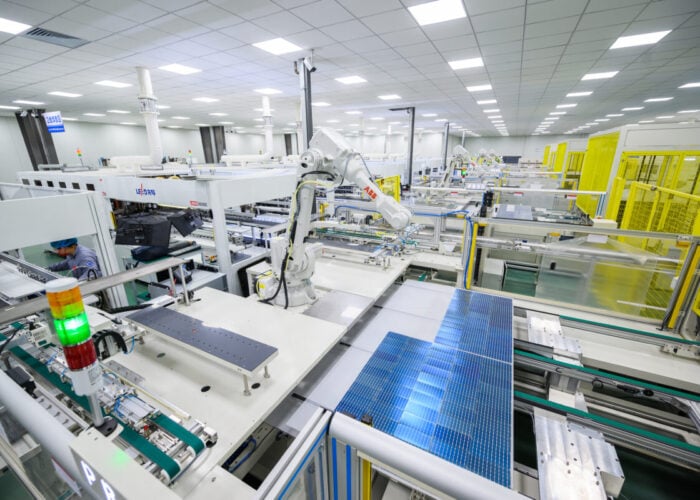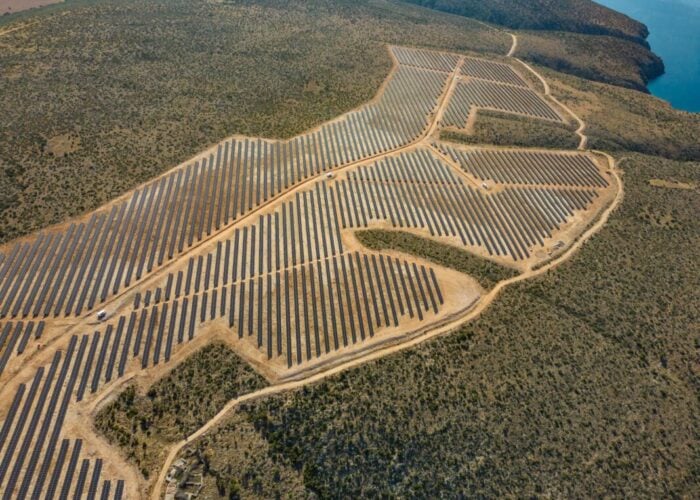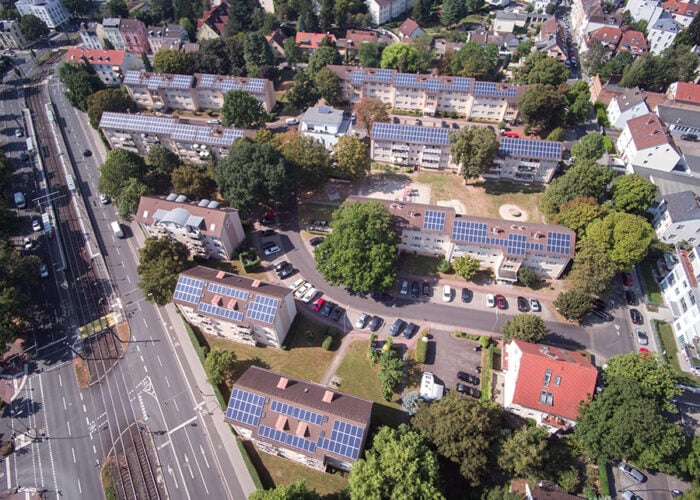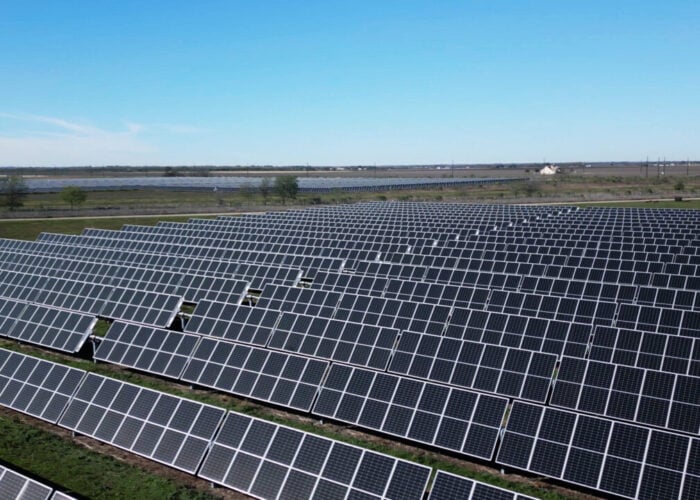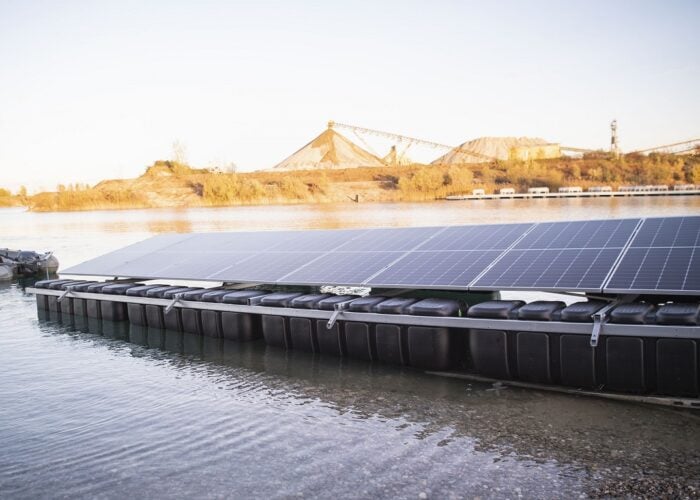SBM Solar says it has become the first company to earn UL certification on its nonglass, rigid, crystalline-silicon photovoltaic modules. The panels are encapsulated with a non-EVA-based thermoplastic material developed by Dow Chemical.
“Our 140W solar panel endured four years of rigorous UL1703 testing,” says Osbert Cheung, SBM’s founder and president. “UL approval, as well as our IEC61215 certification for hail impact resistance, demonstrates SBM Solar’s strong commitment to quality and safety.”
Unlock unlimited access for 12 whole months of distinctive global analysis
Photovoltaics International is now included.
- Regular insight and analysis of the industry’s biggest developments
- In-depth interviews with the industry’s leading figures
- Unlimited digital access to the PV Tech Power journal catalogue
- Unlimited digital access to the Photovoltaics International journal catalogue
- Access to more than 1,000 technical papers
- Discounts on Solar Media’s portfolio of events, in-person and virtual
Or continue reading this article for free
Cheung explained that the Dow-developed thermoplastics “allow us to manufacture panels three times faster than traditional glass modules while maintaining highly consistent quality.”
The company says that its durable, customizable nonglass PV modules are 40% lighter and thus easier and cheaper to ship and handle (and have the highest power vs. weight ratio in the world), also making them suitable for applications with weight restrictions.
SBM, which has R&D and manufacturing facilities in Concord, NC, cites Motech and Suniva as two of its cell suppliers.

